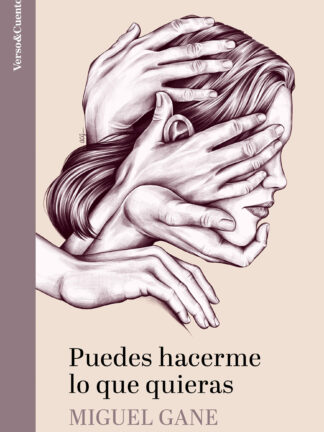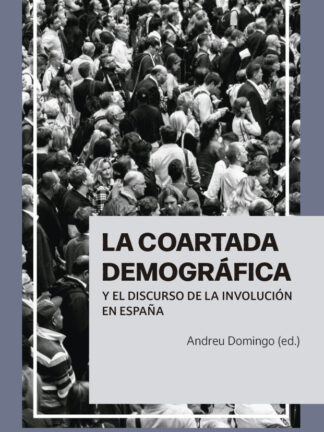Descripción
Handbook on Spanish Criminal Proceedings
Valoramos su privacidad
Usamos cookies para mejorar tu experiencia de navegación, ofrecer anuncios o contenidos personalizados y analizar nuestro tráfico. Al hacer clic en "Aceptar todo", aceptas el uso de cookies.
Usamos cookies para ayudarte a navegar de manera eficiente y permitir ciertas funciones. A continuación encontrarás información detallada sobre todas las cookies, clasificadas por categorías de consentimiento.
Las cookies clasificadas como "Necesarias" se almacenan en tu navegador porque son esenciales para habilitar las funcionalidades básicas del sitio....
Necessary cookies are required to enable the basic features of this site, such as providing secure log-in or adjusting your consent preferences. These cookies do not store any personally identifiable data.
Functional cookies help perform certain functionalities like sharing the content of the website on social media platforms, collecting feedback, and other third-party features.
Analytical cookies are used to understand how visitors interact with the website. These cookies help provide information on metrics such as the number of visitors, bounce rate, traffic source, etc.
Performance cookies are used to understand and analyse the key performance indexes of the website which helps in delivering a better user experience for the visitors.
Advertisement cookies are used to provide visitors with customised advertisements based on the pages you visited previously and to analyse the effectiveness of the ad campaigns.
25,00 € 23,75 €
Hay existencias
Handbook on Spanish Criminal Proceedings
Preface 15
Xulio Ferreiro Baamonde
Abbreviations 17
Most common legal terms and Spanish correspondence 19
Lesson 1
Different Systems and Principles in Criminal Justice
Fernando Martín Diz
Professor of Procedural Law
Universidad de Salamanca
I. WHAT ARE CRIMINAL PROCEEDINGS FOR? 21
II. SYSTEMS IN CRIMINAL JUSTICE 22
III. PRINCIPLES OF CRIMINAL PROCEEDINGS 22
IV. CONSTITUTIONAL RIGHTS AND CRIMINAL PROCEDURE 24
1. Right to obtain effective protection of the Judges and Courts 25
2. Right to be present at the trial in criminal proceedings 26
3. Right of access to the regular judge pre-established by law 26
4. Right to presumption of innocence 26
5. Right to defence and legal counsel 27
6. Right to be informed of the charges 28
7. Right to a Fair Trial 28
7.1. Right to a public trial 28
7.2. Right to be tried without undue delay and due process of law 28
7.3. Right to the use of appropriate evidence (to defence) 29
7.4. Right to remain silent and right not to incriminate oneself 29
Lesson 2
Criminal proceedings: A general overview
Sabela Oubiña Barbolla
Professor of Criminal Procedure Law
Universidad Autómoma de Madrid
I. THE SPANISH LAW OF CRIMINAL PROCEDURE 31
II. INITIATION OF THE CRIMINAL PROCEEDING: CHANNELS 33
1. The citizen’s report 34
2. The criminal police report 35
3. The criminal complaint 36
4. In summary: report vs. criminal complaint 38
III. THE STRUCTURE OF THE CRIMINAL PROCEEDING 39
1. A general overview 39
2. Outline of the phases 40
IV. THE SUBJECT MATTER OF THE CRIMINAL PROCEEDING 42
V. CONNECTIVITY 43
1. Concept 43
2. Cases 44
3. Effects 45
VI. CRIMINAL AND CIVIL ACTIONS 47
Lesson 3
Jurisdiction: Criminal Courts in the Spanish Judicial System. Spanish Jurisdiction on Criminal Matters. Venue
Agustín Pérez-Cruz Martín
Professor of Procedural Law
Universidad de Oviedo
I. LIMITS ON ORDINARY CRIMINAL JURISDICTION 49
II. JURISDICTION 56
1. Concept and basis 56
2. Characteristics 56
3. Criteria used to determine criminal jurisdiction 57
III. OBJECTIVE JURISDICTION 57
1. Ordinary or common objective jurisdiction 58
2. Rationae personae jurisdiction 59
3. Rationae materiae jurisdiction 60
IV. FUNCTIONAL JURISDICTION 62
1. Concept 62
2. Manifestations of functional jurisdiction 63
V. TERRITORIAL JURISDICTION 65
VI. JURISDICTION DUE TO A CONNECTION 66
1. Cases involving a connection 67
2. Effects 68
3. Territorial jurisdiction and connectivity 68
Lesson 4
Parties participating in Criminal Proceedings: Public Prosecutor. Particular and Popular Prosecutors. Defendant. Civil parties. The Police. The Victim
Ana María Neira Pena
Professor of Procedural Law
Universidad da Coruña
I. PUBLIC PROSECUTOR 71
II. PARTICULAR AND POPULAR PROSECUTORS 73
III. DEFENDANT 75
IV. CIVIL PARTIES 75
V. THE POLICE 76
VI. THE VICTIM 78
Lesson 5
Inquiry
Patricia Llopis Nadal
Assistant Professor of Procedural Law
Universitat de València
I. GENERAL ISSUES 81
1. Overview of the inquiry as the first stage of the Spanish criminal procedure 81
2. Individuals that participate in the inquiry 82
2.1. Jurisdiction to investigate the crime: the Investigative Magistrate 82
2.2. The role of the Public Prosecutor during the inquiry 83
2.3. The active role of the other prosecutors and the defence during the inquiry 84
2.4. The role of the Judiciary Police during the inquiry 85
3. The secret nature of the inquiry 86
4. The deadlines of the inquiry 87
II. THE ACTS OF INVESTIGATION 87
1. Definition and types of acts of investigation 87
2. The ordinary acts of investigation 88
2.1. The visual inspection 88
2.2. Acts of investigation on the corpus delicti 89
2.3. Acts of investigation regarding the identity of the perpetrators and their personal circumstances 89
2.4. The statement of the person charged 89
2.5. The statement of the witnesses 90
2.6. The confrontation of witnesses and the person charged 91
2.7. The expert’s report 91
2.8. The controlled movement or delivery and the undercover agent 92
3. The extraordinary acts of investigation 93
3.1. Common requirements that shall be fulfiled 93
3.2. The entry and search in domiciles 93
3.3. The search of books and papers 95
3.4. The seizure, opening and examination of private correspondence 95
3.5. Acts of investigation on the human body 96
3.6. The technological acts of investigation 97
3.6.1. The interception of telephone and telematic communications —Art. 588 ter a) to m)— 97
3.6.2. The capturing and recording of oral communications using electronic devices —Art. 588 quater a) to e)— 98
3.6.3. The use of electronic devices in order to capture images, monitor and trace —Art. 588 quinquies a) to c)— 99
3.6.4. The search of mass data storage devices —Art. 588 sexies a) to c)— 99
3.6.5. The remote search of computer equipment —Art. 588 septies a) to c)— 99
Lesson 6
Preventive Measures In Criminal Proceedings
Anna Fiodorova
Assistant Professor of Procedural Law
Universidad Carlos III de Madrid
I. INTRODUCTION 101
II. PREVENTIVE DEPRIVATION OF LIBERTY: NATIONAL MEASURES 102
1. Conditional release 102
2. Detention 103
3. Provisional imprisonment 103
4. Procedural guarantees in cases of detention and imprisonment 105
III. EXTRADITION AND EUROPEAN ARREST WARRANT 106
IV. PREVENTIVE MEASURES FOR THE PROTECTION OF VICTIMS 110
V. PREVENTIVE MEASURES IN REM 112
Lesson 7
Intermediate Stage
Mª Ángeles Catalina Benavente
Professor of Procedural Law
Universidade de Santiago de Compostela
I. PROCEDURAL MEANING 115
II. THE ACCUSATORY PRINCIPLE IN THE INTERMEDIATE STAGE 116
III. DISMISSAL 118
1. Types of dismissal: full and provisional 118
1.1. Full dismissal (sobreseimiento libre) 118
1.2. Provisional dismissal (sobreseimiento provisional) 119
2. Consequences of dismissal 120
3. Binding of the judicial body to the request for dismissal 120
4. Appeals of dismissal orders 121
IV. GUILTY PLEA (CONFORMIDAD) 122
1. Scope of application 123
2. Guilty plea requirements 123
3. Timing of guilty pleas 124
3.1. Guilty pleas during the pre-trial stage 124
3.2. Guilty pleas during the intermediate stage 125
3.3. Guilty pleas at trial 126
4. Binding the judge to the defendant’s guilty plea 127
5. Appealing a judgement entered pursuant to a guilty plea 128
Lesson 8
Trial
Ana E. Carrillo del Teso
Assistant Professor of Procedural Law
Universidad de Salamanca
I. GENERAL ISSUES 129
II. ARTICLES OF PRE-TRIAL RULINGS 129
III. INITIAL PLEADINGS 131
IV. EVIDENCE PRESENTATION. INTRODUCTION OF INVESTIGATIVE ACTIVITIES DURING THE TRIAL 134
1. Evidentiary procedure 134
1.1. Proposition 134
1.2. Admission 134
1.3. Examination 135
2. The introduction of investigative acts 136
V. CLOSING ARGUMENTS 137
VI. THE POWERS OF THE COURT UNDER ART. 733, LECRIM 140
VII. ORAL TRIAL PROCEEDINGS. EXCEPTIONS 141
1. Exceptions to the publicity of the deliberations 141
2. Suspension 142
Lesson 9
Evidence
Elena de Luis García
Assistant Professor of Procedural Law
Universitat de València
I. GENERAL ISSUES 145
1. Concept of evidence 145
2. Principles of evidence 146
II. MEANS OF EVIDENCE 147
1. Defendant’s deposition 147
2. Witnesses and experts 148
2.1. Witnesses 148
2.2. Experts 150
3. Documents 151
4. Judicial inspection 151
5. Circumstantial evidence 151
III. ILLEGAL EVIDENCE 152
1. Concept of illegal evidence 152
2. Rules that exclude the sanction of nullity 153
Lesson 10
Verdict and Sentence
Ana Isabel Blanco García
Professor of Procedural Law
Universitat de València
I. SENTENCE 157
1. Acquittals 158
2. Convictions 158
II. FORMAL REQUIREMENTS OF THE FINAL DECISION 159
1. Oral criminal sentences 159
2. Written criminal sentences 159
III. INTERNAL REQUIREMENTS OF THE FINAL DECISION: REASONING AND COHERENCE 161
1. Justification and reasoning: the rule of sufficiency 161
2. Consistency or coherence 162
3. Voting on the judgement: the majority rule 162
4. On ancillary consequences 163
IV. PRESUMPTION OF INNOCENCE 165
1. Meaning of the principle 165
2. Burden of proof 166
3. In Dubio Pro Reo 167
4. Assessment of evidence 167
V. PUBLICISING JUDGEMENTS 168
VI. RES JUDICATA AND NE BIS IN IDEM 168
1. Formal res judicata 168
2. Substantive res judicata 168
VII. CLARIFICATION, RECTIFICATION, CORRECTION OR COMPLETION OF THE JUDGEMENT 169
Lesson 11
Appeal and other remedies
Xulio Ferreiro Baamonde
Professor of Procedural Law
Universidade da Coruña
I. SYSTEM OF REMEDIES IN SPANISH CRIMINAL PROCEEDINGS 171
1. General Issues 171
2. Types of remedies 172
3. Requirements 173
II. REMEDIES AGAINST COURT CLERK DECISIONS 174
III. REMEDIES AGAINST INTERLOCUTORY DECISIONS 174
1. Reform 174
2. Appeal for reversal 175
3. Appeal 175
4. Complaint 176
IV. APPEAL AGAINST JUDGMENTS 176
1. Scope of the remedy 176
2. Proceedings 177
3. Appeal judgment 178
V. CASSATION 179
1. General Issues 179
2. Challengeable Decisions and Reasons for Cassation 180
3. Proceedings 182
VI. CRIMINAL REVIEW 183
VII. JUDGMENT ANNULMENT FOR ABSENT DEFENDANT 185
Lesson 12
Abbreviated Proceeding
David Soto Díaz
Asistant Professor of Procedural Law
Universidade da Coruña
I. ABBREVIATED PROCEEDING 187
1. Introduction 187
2. Investigative stage 189
3. Intermediate stage 190
4. Trial and plea bargaining 192
5. Remedies 194
II. FAST-TRACK PROCEEDINGS FOR CERTAIN CRIMES 194
1. Scope of application 194
2. Tasks of the judicial police 195
3. Urgent judicial proceedings before the Duty Court 195
4. Trial 196
III. DECREE ACCEPTANCE PROCEDURE 197
1. Scope of application 197
2. Procedure 197
IV. PROCEEDINGS FOR MINOR OFFENCES 198
1. Fast-track proceedings before the duty court 198
2. Ordinary regime 199
3. Trial 199
V. JURY TRIALS 200
1. Scope of application 200
2. The jurors and the presiding magistrate 201
3. The proceeding 203
4. The verdict 204
5. Remedies 205
VI. JUVENILE JUSTICE PROCEEDINGS 206
1. Scope of application 207
2. The parties to the proceeding 207
3. Investigative stage 208
4. Intermediate stage and trial 209
5. Judgement and remedies 210
6. Precautionary measures 210
| Fecha de Edición | 2021-09-13 |
|---|---|
| Plazo de entrega | 24 h |
| Número de Edición | 1 |
| Autor | Ferreiro Baamonde, Xulio Xosé / Blanco García, Ana Isabel / Carrillo Del Teso, Ana E. / Catalina Benavente, María Ángeles / Fiodorova, Anna / Llopis Nadal, Patricia / Luis García, Elena De / Martín Diz, Fernando / Neira Pena, Ana Maria / Oubiña Barbolla, Sabela / Pérez-Cruz Martín, Agustín Jesús / Soto Díaz, David |
| Idioma | Inglés |
| Formato | Libro |
| Páginas | 2104 |
| Lugar de edición | VALENCIA |
| Encuadernación | Rústica |
| Colección | MANUALES TIRANT LO BLANCH |
| Editorial | TIRANT LO BLANCH, EDITORIAL |
| EAN | 978-84-1397-890-1 |


